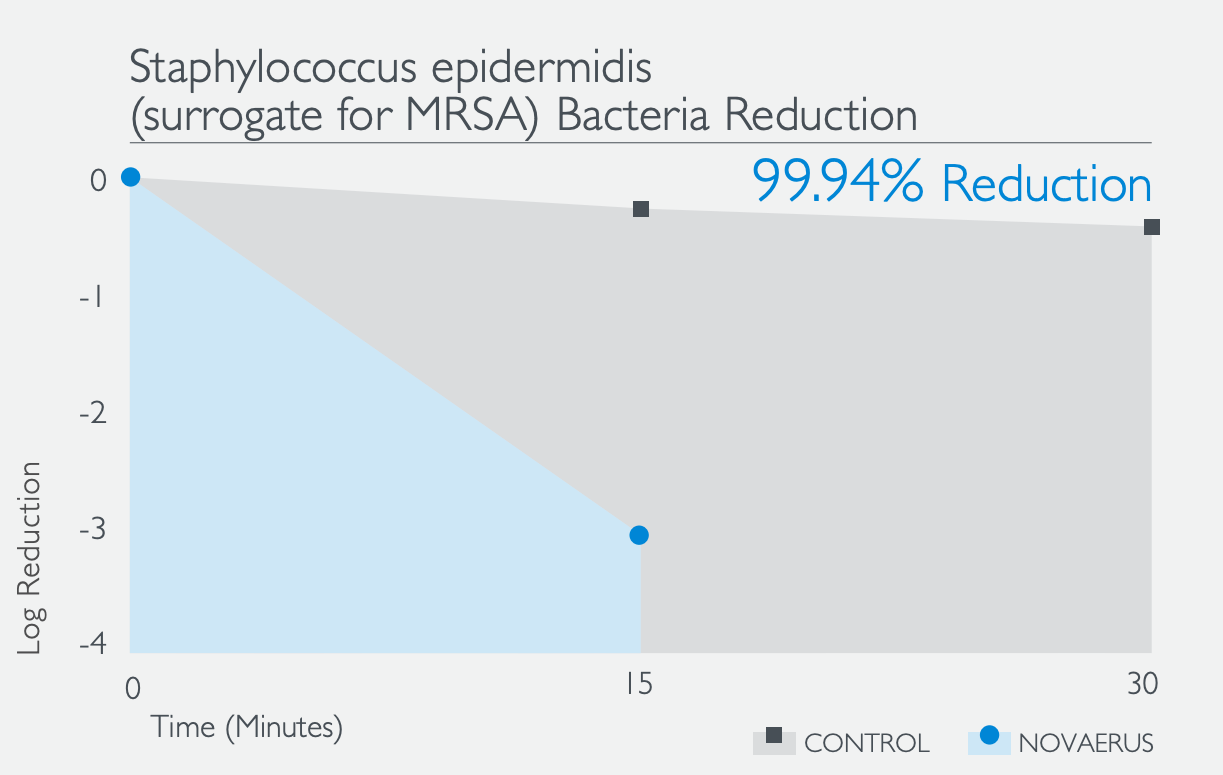Staphylococcus epidermidis Bacteria Reduction
- Authors
- Jessica Dobbin, BSc BA
- Facility
- Novaerus Research and Development Labs; Ireland
- Download
- Full Report
Defend 1050 Reduces MRSA Surrogate
Objective
To evaluate the efficacy of the Defend 1050 on reducing airborne Staphylococcus epidermidis bacteria, a surrogate for methicillin-resistant Staphylococcus aureus (MRSA). MRSA is an example of a superbug.
Methodology
The test environment was a 30 m3 test chamber, located in the Novaerus microbiology laboratory. During the testing, the Defend 1050 device was placed inside the chamber at the centre, with the air inlet facing towards the door of the chamber. The Defend 1050 device was tested at maximum airflow, speed setting 5. The test chamber was controlled for temperature and humidity at 77ºF and 50% relative humidity.
Results
The Defend 1050 achieved a microbial cell reduction of 99.94% of Staphylococcus epidermidis, a surrogate for methicillin-resistant Staphylococcus aureus (MRSA), within 15 minutes of operation.
